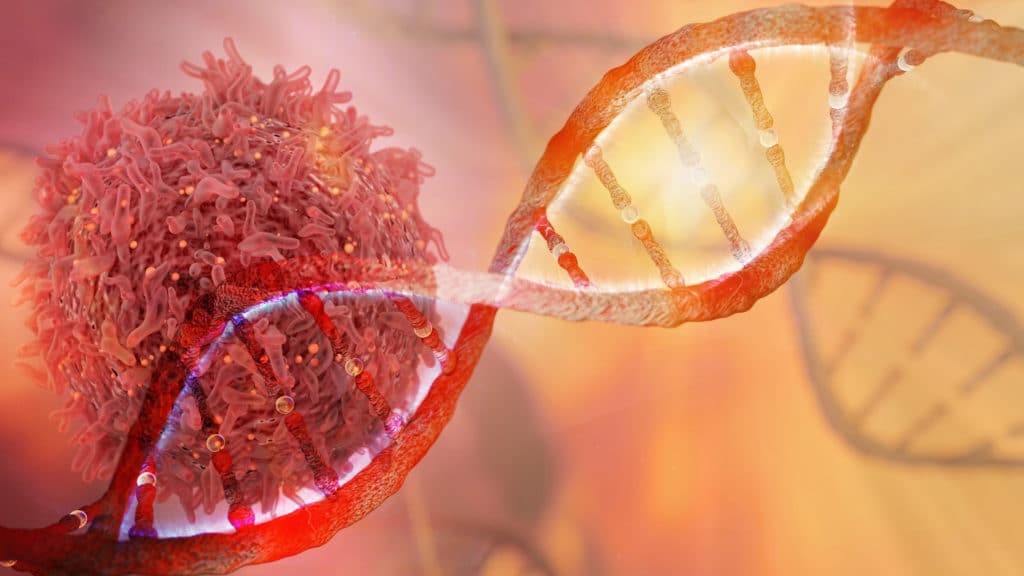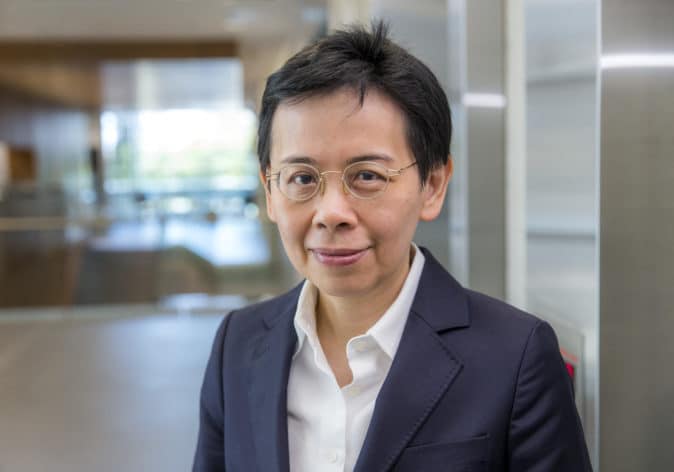Who Should Have Genetic Testing?
The question of who should have genetic testing is a very important one and it’s important to note that most women should not have genetic testing.
The vast majority of breast cancers are not because you’ve inherited a particular mutation from your mother or father, but because of lots of environmental issues – some of which we know about and some we don’t.
So for those women who have a genetic mutation in their family, they’re the ones that we want to particularly target. These are the women who’ve either had breast cancer themselves at a very young age, say under the age of 40, but particularly those women who have a lot of breast cancer in the family. Breast cancer is, unfortunately, quite a common disease.
So all of us, if we look hard enough, can probably find some breast cancer in our family, but what rings the alarm bells is if you’ve got a number of fairly close relatives – sisters, mothers, aunts – who have had breast cancer, particularly in their younger years – not when they’re 75 but perhaps when they’re 40 or 50. They’re the women who potentially might have genetic testing.
The reason we have to be a bit careful about this is because the whole genetic aspect of cancers is incredibly complicated. If you do genetic testing in everyone, you’ll find a whole bunch of abnormalities, or variations, because we’re all human beings and we’re all different and we won’t actually know whether some of those might be disease-causing changes or not. So we’ll cause a lot of panic and probably not a lot of good.
Whereas, if you’ve got breast cancer at a very young age, or you’ve got a number of relatives who have had breast cancer at a very young age, then there are specific tests we can do that might identify a mutation that you want to know about because there might be something you can do about it.
So, the first point is that we shouldn’t be running off and testing every single woman who is either at risk of breast cancer or has breast cancer – we should be targeted about it, and just look at younger women or women with a lot of breast cancer in the family.
The second point is that this sort of genetic testing should be done in collaboration with genetic counselling because you need to talk to qualified professionals before you have the test. They can explain to you what the pros and cons are.
For example, it’s possible that having a genetic test might have some implications for things like life insurance, so you need to discuss that before you do the test. Secondly, once you’ve got the result from the test these genetic tests are not like some of the tests that we do that give you a definite yes or a definite no. You either have a heart attack or you don’t, for example. Or you have cancer or it’s not cancer.
Listen to the podcast
Listen to our conversation with Associate Professor Nicholas Wilcken.
What Happens If A Genetic Mutation Is Found?
These tests are very complicated and they require some interpretation. If you’re going to have genetic testing, you need to talk to the experts about it first, and you need to have arrangements, which they will do for you, so that when the test result comes up, you talk to them about it and they can explain to you whether they think this, in fact, a serious finding or perhaps not such a serious finding.
It’s always difficult, if a mutation is found, that we identify is for example a mutation in the genes BRCA1 or BRCA2 that we know most about, where we can say, “Unfortunately we’ve found this mutation and this means that you do have a very high risk of developing breast cancer”, or in some cases ovarian cancer. It’s true that presents you with some difficult problems but it’s generally probably better to know than not to know.
So the first thing is there are some things you can do yourself, you might be enrolled in a program where you get extra MRI scans, for example, that can be funded to look very carefully for breast cancer. You might decide that if you’ve finished having children and the doctors say that ovarian cancer is part of the problem that you could have your ovaries taken out because that’s a relatively minor operation and is likely to fix that side of the problem. More radically, you might decide to actually have breast surgery to have breasts removed and to have reconstruction, but that’s obviously not for everyone.
The difficult situation is when a woman does have a very strong family history, there are a lot of relatives who have had breast cancer at a very young age, and you do the testing and you don’t find a mutation, because although we can’t prove it it’s likely there’s a mutation in something, it’s just that we can’t find it. Then you have a difficult situation and that’s something you should talk to the experts about, whether that means that you should do some of those potentially radical surgical options or extra tests or whatever. That’s obviously something we’re working hard to get better at.
Given the pace of advancing technology, we will get better and better at identifying those mutations, always remembering that around 95% of all breast cancer does not involve inherited mutations that we can identify. It’s those women who are getting cancer at a young age, or who have family members at a young age who are at risk of this.
Support Us
Help us to change lives through breast cancer clinical trials research



